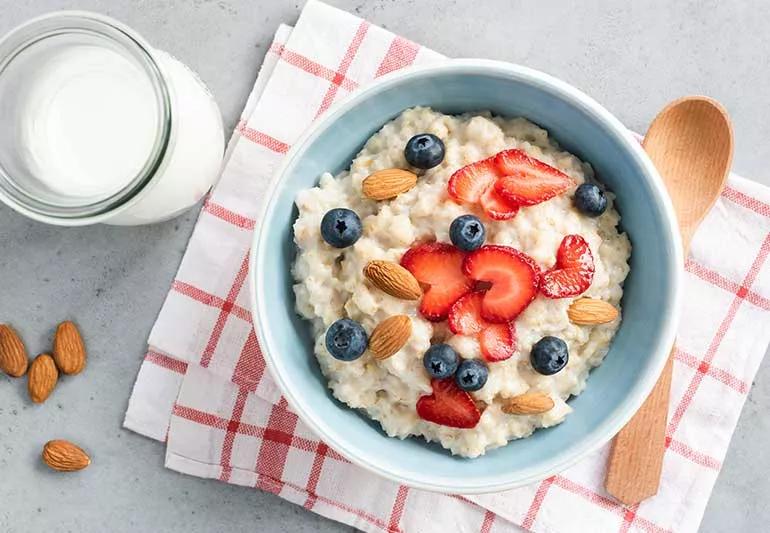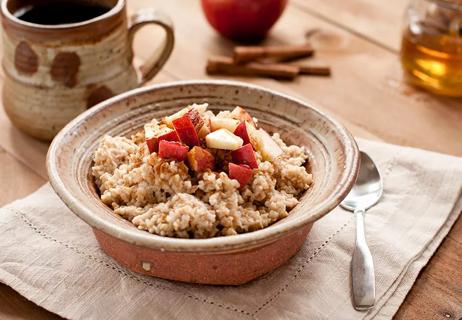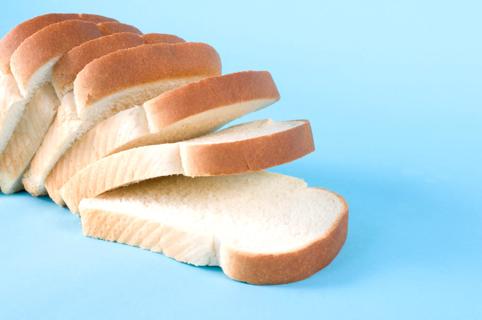The amount you need depends on several factors, such as age, sex and activity level

You know them well: pastas, breads, rice and potatoes. Called carbohydrates, or carbs, they’re the go-to nutrient that many people try to cut down on (or cut out) when trying to lose weight.
Advertisement
Cleveland Clinic is a non-profit academic medical center. Advertising on our site helps support our mission. We do not endorse non-Cleveland Clinic products or services. Policy
But we need carbs. They’re the main energy source for your body, especially your brain. Your digestive system quickly breaks down carbohydrates into glucose (blood sugar) to fuel your cells, tissues and organs. Your body can use glucose right away or store it for later use.
But some carbohydrates are better for your body than others. Knowing the difference, and how many carbs to eat per day, can benefit your health. It may also help if you’re trying to shed extra pounds — and keep them off.
“Carbs have a bad rap. But even for weight loss, you still don’t want to eliminate all of them. Many contain fiber and other nutrients that are good for you,” says registered dietitian Annalise Pratt, RD, LD. “It’s important to strike a balance, so you get the most benefits and maintain good health.”
Carbohydrate needs vary from person to person. The amount you need for weight loss depends on several factors such as your age, sex and activity level.
The recommended percentage of your daily calories from carbohydrates is typically 45% to 65% carbohydrates. Carbohydrates contain 4 calories per gram. That means, if you follow a 2,000-calorie diet, you’d want 225 to 325 grams of carbohydrates in your daily diet.
Advertisement
Losing weight requires you to burn more calories than you consume. Experts say you should aim to burn 500 calories more than what you eat each day. As far as how many carbohydrates to eat, Pratt says 100 to 150 grams of carbohydrates is safe for most people who are trying to lose weight.
It may be better for some people to eat carbs consistently throughout the day. “You can also break it up evenly with 40 to 50 grams of carbs per meal,” she says. “For example, if you have a sandwich, two pieces of bread would give you about 30 grams. Lunchmeat and cheese don’t add any carbs. If you have an apple with it, that would add 15 grams. In total, that would be about 45 grams of carbs.”
If you’re still hungry, Pratts suggests adding vegetables or something with healthy fats, like nuts. That way, you’re eating enough to fill up but you’ve met your carbohydrate goal.
To calculate the right amount of carbohydrates for you, use the USDA DRI Calculator. It’s a well-established way of determining your nutrient needs, if you’re not on a weight loss diet, Pratt says.
The online calculator uses your height, weight, age, sex and activity level to show your:
Yes. People who are physically active with more lean muscle mass can tolerate a lot more carbohydrates than those who are inactive. Limiting your carbohydrate intake can lead to poorer performance in exercise or sports, especially activities such as lifting weights or sprinting.
“Athletes, especially, need to have enough carbohydrates. If runners don’t have that storage of carbs, they’re going to suffer when they’ve been running for miles,” Pratt states. “This is why certain types of athletes, like competitive runners and bodybuilders, use carb cycling and carb loading before athletic events. If they’re not eating enough carbs, their body is going to use protein for energy, instead of for rebuilding and restoring their muscles.”
Low-carb diets involve restricting the carbohydrates you eat and drink and eating higher amounts of protein and fat.
Pratt says low-carb diets are safe for most people who are in good health. But you still need about 130 grams of carbohydrates for your brain and nervous system to work their best.
You may experience fatigue or other side effects if you don’t get enough carbs. You also need to monitor your saturated fat intake, which can lead to increased cholesterol levels.
Advertisement
For most people, it’s better to take a more balanced approach to weight loss that maximizes your long-term health, Pratt advises. Consume carbohydrates in moderation and avoid reducing your intake too much without medical supervision.
“If you decide to follow a low-carb diet, I recommend taking a multivitamin to be sure you are still meeting your vitamin and mineral needs,” she adds.
Low-carb diets aren’t recommended for children or those who:
If you have diabetes, talk to your healthcare provider before starting a low-carb diet.
There are two broad categories of carbohydrates, based on their molecular structure and what they contain:
“Complex carbs are typically more filling and provide better blood sugar stabilization,” Pratt notes.
Choosing your carbohydrates wisely can help boost weight loss efforts when paired with a balanced diet and healthy lifestyle. Reducing your overall carb intake and replacing simple carbs with complex carbs and other healthy foods may help you:
Advertisement
Complex carbohydrates take longer to digest than simple carbs, so they may keep you satisfied and energized for longer. This can help you hold off from snacking and potentially reduce your overall calorie intake. Other nutrients often found in complex carbs, like protein or healthy fats, also help fill you up more than simple carbs.
In one study, adults with a BMI of 25 or more who followed a low-carb, high-fat diet burned more calories per day than those who didn’t. This change in metabolism, in part, may be a result of hormonal responses to a change in diet.
Eating simple carbohydrates, especially those high in refined sugar, can raise your blood sugar levels more than other nutrients. If simple carbs are your go-to, eating less of them or swapping some out with complex carb foods, may help control your blood sugar.
Whether your goal is weight loss or just improving your overall health, focus on eating fewer simple, less nutritious carbs like:
Advertisement
Instead, try to eat more nutritious complex carbs like:
Reducing carbohydrates to lose weight involves more than keeping an eye on your plate. After all, some of the rapid weight loss from a low-carb diet comes from losing the water that carbs contain.
It’s important to pair a balanced diet with exercise and change unhealthy behaviors or habits, Pratt says. A healthcare provider, nutritionist or registered dietitian can provide personalized recommendations based on your health, activity level and goals.
“Low-carb diets can work in the short term for weight loss, but it generally takes more than cutting carbs to create and maintain a calorie deficit,” she explains. “Having a well-rounded plan for losing weight and maintaining a healthy weight is the best formula for long-term success.”

Sign up for our Health Essentials emails for expert guidance on nutrition, fitness, sleep, skin care and more.
Learn more about our editorial process.
Advertisement

It’s all about choosing complex carbs — like whole grains — that will keep you full

A low-FODMAP elimination diet can help identify your symptoms

Whole-food carbs come with major health benefits, like fiber and antioxidants

Here’s why you crave them and how to curb them

The eating plan is ideal for fueling high-intensity activities (but not for weight loss)

Opt for complex carbs that are full of fiber or protein

Which carbs should you cut if you want to lose weight?

Even small moments of time outdoors can help reduce stress, boost mood and restore a sense of calm

A correct prescription helps your eyes see clearly — but as natural changes occur, you may need stronger or different eyeglasses

Both are medical emergencies, but they are very distinct events with different causes